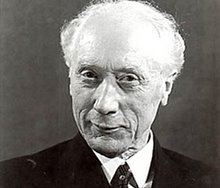Article (by Thomas Hanna)
"Nowadays, there are so many different kinds of “body work” that even the body workers are confused about what each other is doing. Here, finally, is a way of making sense of a complex field. (...)
The somatic therapies share a common viewpoint, but all of them do not move in a common direction. The somatic healers, like those in traditional medicine, offer remedies for specific ills. The somatic educators, in contrast, seek to educate the client, not to heal - cures are secondary to the more general concern to educate the client toward a higher level of health, growth and happiness. (...)
This (The Alexander Technique, M. S.) is education rather than therapy. Nothing is removed; instead, something is added: knowledge and control. Bodily processes which were beyond a person's awareness became, through biofeedback, controllable. Gaining control through gaining awareness of one's bodily processes is a general theme of the somatic educators. They see that what medicine and physiology have believed to be uncontrollable, involuntary processes are not uncontrollable after all. For the somatic educators, conscious awareness of what was previously unconscious is the gateway to change. They tend to see consciousness, not as an abstract “mind,” but as a potent neurophysiological function for controlling the body."
(Hanna, Thomas: The Somatic Healers and The Somatic Educators, Somatics - Magazine-Journal of the Bodily Arts and Sciences, Volume I, No. 3, Autumn 1977)
Thomas Hanna, 1977 Herausgeber der Zeitschrift Somatics, über den Unterschied zwischen heilerischen und erzieherischen Ansätzen im Bereich somatisch orientierter Verfahren. Die Alexander-Technik, so Hanna, sei - wie auch die Feldenkrais-Methode und die Arbeit Elsa Gindlers - den edukativen Verfahren zuzurechnen.



Keine Kommentare:
Kommentar veröffentlichen